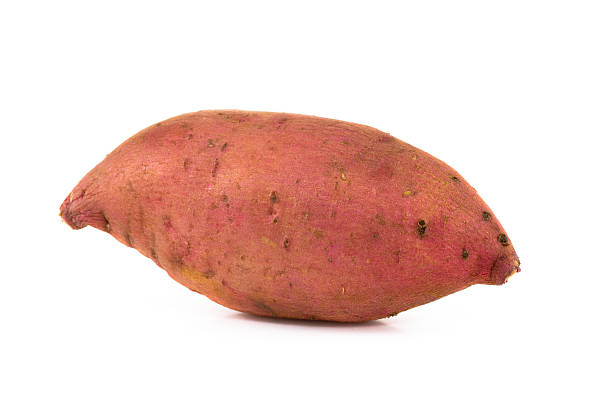Illustrative Image: Cross-Pathogenicity of Molds in Stored Irish Potatoes: Rhizopus and Aspergillus Threaten Nigeria’s Staple Crops and Food Security
Image Source & Credit: iStock
Ownership and Usage Policy
A recent study by Tawose, F. O. (2025) titled “CROSS-PATHOGENICITY ASSAY OF SOME MOLDS ISOLATED FROM STORED Solanum tuberosum (IRISH POTATOES)” published in Open Journal of Bioscience Research (ISSN: 2734-2069) revealed that Rhizopus sp. was the most aggressive pathogen on potatoes, producing the largest rot diameter (32 mm), while A.
“
Rhizopus sp. and Aspergillus flavus are highly virulent fungi capable of cross-infecting multiple staple crops, threatening storage systems and food security.
– Tawose, F. O. 2025
The study explores the fungal threats undermining postharvest potato storage in Nigeria and their potential to infect other staple crops. The research sought to identify the fungi responsible for potato rot, assess their virulence, and determine their ability to cross-infect crops such as yam, ginger, cocoyam, and onion. Findings revealed that Rhizopus sp. was the most aggressive pathogen on potatoes, producing the largest rot diameter (32 mm), while A. flavus caused the most severe decay in onion bulbs (33 mm). Fusarium oxysporum showed strong virulence on cocoyam, and Rhizopus sp. demonstrated high infectivity across all tested crops, confirming that these fungi pose a broad cross-infectivity risk. The implications are significant: these molds represent a serious threat not only to stored potatoes but also to other food staples, thereby endangering food security. The study emphasizes that mixed storage of crops encourages cross-contamination and amplifies spoilage risks. Consequently, improved postharvest practices—such as strict hygiene measures, better storage infrastructure, and careful crop handling—are urgently needed to mitigate losses and protect agricultural productivity. This research serves as a crucial warning for farmers, traders, and policymakers in Nigeria and similar environments, highlighting the urgent need to safeguard food systems from fungal pathogens that cut across multiple storage crops.
How the Study was Conducted
The study on cross-pathogenicity of molds isolated from stored Irish potatoes was designed to systematically investigate how fungal infections contribute to postharvest losses and whether these pathogens can spread to other crops. Conducted in Lokoja, Kogi State, Nigeria, the research provided a structured approach to understanding fungal behavior. Researchers collected 25 rotten Irish potato tubers from five different storage sites. Only tubers showing visible signs of rot were selected to ensure active fungal presence. The infected tissues were cultured on Potato Dextrose Agar (PDA) and incubated at room temperature for 5–7 days. Identification was based on morphological and microscopic features, following established taxonomic keys. To confirm the fungi’s ability to cause rot, healthy potato tubers were surface-sterilized, wounded, and inoculated with isolates. After incubation under controlled conditions, rot diameters were measured over 7 days to assess virulence. To evaluate cross-host infectivity, the same fungal isolates were tested on cocoyam, onion, and ginger using similar inoculation and incubation methods. Rot development on these crops was carefully monitored and measured. Data were analyzed using frequency of fungal occurrence, rot diameter (mm), and comparative virulence across host crops. This enabled the ranking of fungal isolates by their pathogenic potential and cross-infectivity.
What the Author Found
The study found that the fungal species isolated from rotten Irish potatoes—particularly Rhizopus sp.—are not only highly pathogenic to potatoes but also capable of cross-infecting other stored crops like onion, cocoyam, and ginger, posing a major risk of widespread postharvest spoilage in mixed storage systems.
Why is this important
Safeguarding Staple Crops: The study shows that fungi such as Rhizopus sp. and Aspergillus flavus can infect multiple crops, meaning one contaminated batch can spoil entire storage units, threatening food supplies.
Reducing Economic Losses: Postharvest fungal spoilage lowers crop market value, drives up food prices, and wastes farmers’ time, labor, and resources. Identifying the main fungal culprits supports effective interventions.
Improving Storage Practices: Mixed storage of crops increases the risk of cross-contamination. The research highlights the need for better hygiene, ventilation, and crop separation in storage facilities.
Guiding Policy and Research: Findings provide a foundation for breeding fungal-resistant crops, improving farmer education, and shaping agricultural policies that invest in stronger postharvest systems.
Protecting Public Health: Some fungi, such as Aspergillus flavus, produce dangerous mycotoxins. Controlling these pathogens is vital not only to prevent food losses but also to safeguard human health.
What the Author Recommended
- The author advocates cleaning and disinfecting storage facilities regularly, avoiding mixing infected tubers with healthy ones, maintaining cool, dry, and well-ventilated environments, and separating different crops to minimize cross-infection risks.
- The study further emphasises introducing routine screening, training staff in fungal identification, and developing rapid diagnostic tools for aggressive fungi like Rhizopus sp. and Aspergillus flavus.
- In addition, raise awareness about the risks of mixed storage and provide training on best practices for crop handling and storage and support studies on resistant crop varieties, biological control measures, and the toxigenic risks of fungi such as Aspergillus flavus.
In conclusion, the study underscores the urgent need for improved storage practices, targeted interventions, and farmer awareness to curb fungal cross-infection, safeguard staple crops, and strengthen food security in Nigeria and beyond.
















 The African Research (AR) Index is a comprehensive scholarly directory and database focused explicitly on journal publishers that publish and disseminate African research.
The African Research (AR) Index is a comprehensive scholarly directory and database focused explicitly on journal publishers that publish and disseminate African research.

